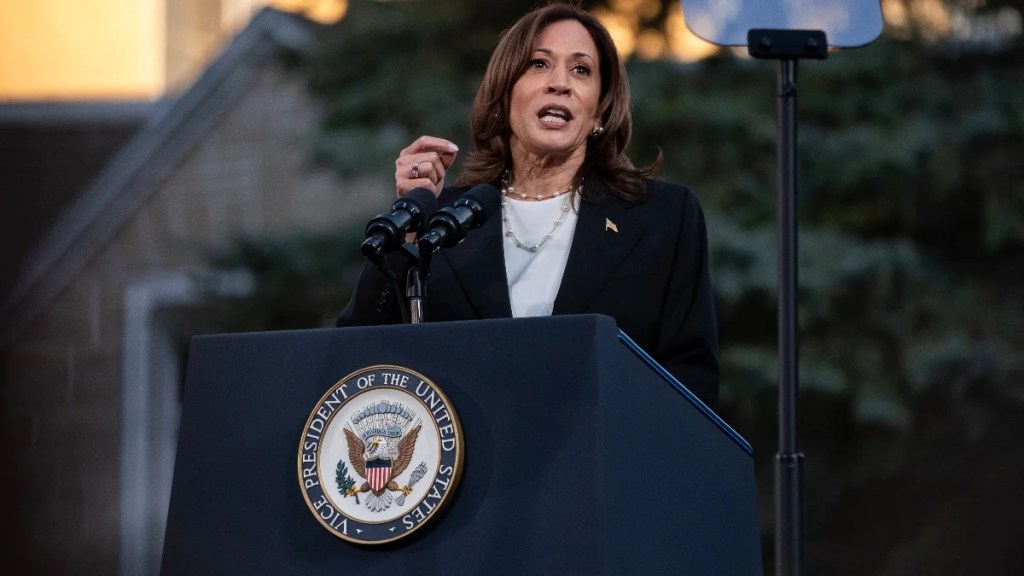In a recent appearance on “The Howard Stern Show,” Vice President Kamala Harris discussed former President Donald Trump’s decision to withdraw from a scheduled interview with “60 Minutes.” During the interview, Harris highlighted Trump’s aversion to fact-checking, suggesting that it reveals a significant weakness in his character as a leader. This notion resonates with her broader framing of the upcoming election as one that fundamentally contrasts strength with weakness. Harris expressed that true strength comes from a leader who is willing to engage openly with the American public and address their needs and concerns without trying to evade scrutiny. For her, Trump’s last-minute cancellation is emblematic of a deeper issue regarding his ability to face challenging questions and the realities of his actions and policies.
Howard Stern’s commentary on Trump’s avoidance of the interview noted the absurdity of a political candidate not wanting to be fact-checked. He described it as “maddening” and indicative of a troubling mindset when it comes to accountability in leadership. Harris agreed, emphasizing that a leader must not only demonstrate the ability to stand up to direct questioning but also commit to protecting and serving the interests of the American people. In her view, weakness is characterized by a refusal to engage with the electorate effectively and transparently, especially when it involves defending one’s record against scrutiny.
Harris elaborated on the responsibilities of a leader, suggesting that part of demonstrating strength involves addressing key issues that affect everyday Americans. This includes working on national security, maintaining and nurturing international alliances, supporting the military, and addressing economic concerns such as the rising cost of living for working families. In contrast to Trump’s avoidance, Harris positioned herself as someone who is ready and willing to confront these challenges head-on. She articulated a vision of governance that combines accountability, transparency, and a commitment to serving the best interests of the nation.
The former president’s hesitance to participate in fact-checking processes appears to connect to broader challenges he faced during his campaign, including debunked statements he made during his ongoing political discourse. Harris referenced instances where Trump was directly confronted with misleading statements, like his exaggeration regarding immigrants in Springfield, Ohio, during a debate. These moments of truth-telling and accountability, highlighted by journalists and debate moderators, suggest a consistent pattern in the broader election narrative where fact-checking plays a crucial role in determining the integrity of the candidates.
As the election approaches, the significance of the “60 Minutes” interview grows, representing not just a platform for candidates to communicate their messages but an opportunity for voters to witness their willingness to engage in a direct and fact-based discussion. For Harris, the stakes of this election extend beyond mere political maneuvering; they challenge candidates to confront the realities of their proposals and past actions. With Election Night set for November 5, both candidates’ approaches to accountability and transparency are likely to remain pivotal in influencing voter perceptions and decisions.
In summary, Kamala Harris’s discussion with Howard Stern sheds light on the contrasting approaches to leadership embodied by herself and Donald Trump. By framing the election as a contest between strength and weakness, Harris emphasizes the importance of accountability and open dialogue in serving the American public effectively. Trump’s withdrawal from the “60 Minutes” interview symbolizes a deeper reluctance to face potential challenges and scrutiny, raising questions about his readiness to lead. Ultimately, these discussions highlight the critical role that fact-checking and transparency play in shaping the electoral landscape and informing voters ahead of the decisive ballot.

